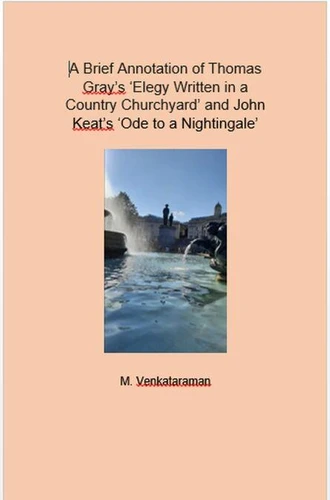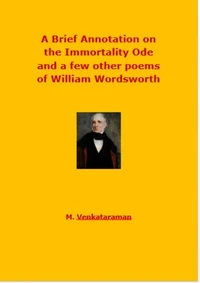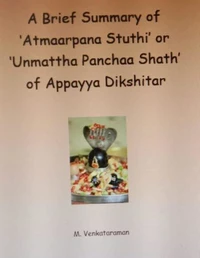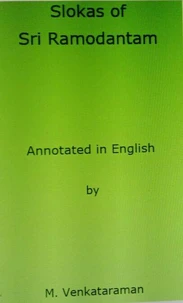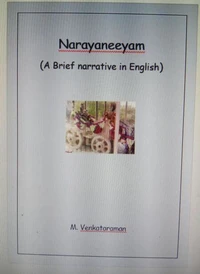A Brief Annotation of Thomas Gray’s ‘Elegy Written in a Country Churchyard’ and John Keat’s ‘Ode to a Nightingale’
Par :Formats :
Disponible dans votre compte client Decitre ou Furet du Nord dès validation de votre commande. Le format ePub est :
- Compatible avec une lecture sur My Vivlio (smartphone, tablette, ordinateur)
- Compatible avec une lecture sur liseuses Vivlio
- Pour les liseuses autres que Vivlio, vous devez utiliser le logiciel Adobe Digital Edition. Non compatible avec la lecture sur les liseuses Kindle, Remarkable et Sony
 , qui est-ce ?
, qui est-ce ?Notre partenaire de plateforme de lecture numérique où vous retrouverez l'ensemble de vos ebooks gratuitement
Pour en savoir plus sur nos ebooks, consultez notre aide en ligne ici
- FormatePub
- ISBN8231861026
- EAN9798231861026
- Date de parution23/07/2025
- Protection num.pas de protection
- Infos supplémentairesepub
- ÉditeurWalzone Press
Résumé
In this book, a brief annotation has been given on two of the famous poems of English literature. They are the "Elegy Written in a Country Churchyard" of Thomas Gray and the "Ode to a Nightingale" of John Keats. The themes of human mortality and the passage of time are central to both these poems. An elegy is generally a reflective poem. It laments the loss of someone or something. It can serve as a tribute to the deceased, expressing grief, sorrow, and admiration.
An ode, on the other hand, is a celebratory poem that praises people, events, or concepts. In the "Elegy Written in a Country Churchyard", the theme of mortality is poignantly depicted by Thomas Gray through the imagery of the graveyard and the lives of the ordinary villagers buried there. In the "Ode to a Nightingale" Keats explores mortality through the lens of beauty and art, using the nightingale as a symbol of transcendence.
In his poem, Gray contemplates on the inevitability of death. The melancholy tone of the poem serves to highlight the ephemeral nature of existence. While doing so, Gray emphasized the commonality of mortality of all human beings irrespective of one's social status or wealth. Through the imagery of the graveyard and the lives of the "rude forefathers" buried there, he dwells upon the evils of the then society which looked down upon the poor and the downtrodden.
The passage of time is portrayed by him through reflections on life's fleeting moments and on human aspirations. Gray mourns not just the physical death of the poor villagers but also the unfulfilled potential of individuals who lived and died in obscurity. The poem of Keats begins with a sense of melancholy and the weight of human suffering. The poet expresses a longing for escape into the timeless song of the nightingale.
He reflects on the joys of life but juxtaposes them with the inevitability of death and decay. He even wishes to die to escape the pain of existence and to experience the eternal bliss represented by the nightingale's song. The poet is torn between his desire to have a blissful state of life and the inevitability of human sufferings. Neither the wine nor the song of the nightingale seem to have given him solace though apparently they take him away to another world of intense happiness and joy.
He reveals a tension between the longing for immortality and the acceptance of life's fleeting nature. In the end, he returns to reality, realizing that the nightingale's song, while beautiful, cannot shield him from the harsh truths of life and mortality.
An ode, on the other hand, is a celebratory poem that praises people, events, or concepts. In the "Elegy Written in a Country Churchyard", the theme of mortality is poignantly depicted by Thomas Gray through the imagery of the graveyard and the lives of the ordinary villagers buried there. In the "Ode to a Nightingale" Keats explores mortality through the lens of beauty and art, using the nightingale as a symbol of transcendence.
In his poem, Gray contemplates on the inevitability of death. The melancholy tone of the poem serves to highlight the ephemeral nature of existence. While doing so, Gray emphasized the commonality of mortality of all human beings irrespective of one's social status or wealth. Through the imagery of the graveyard and the lives of the "rude forefathers" buried there, he dwells upon the evils of the then society which looked down upon the poor and the downtrodden.
The passage of time is portrayed by him through reflections on life's fleeting moments and on human aspirations. Gray mourns not just the physical death of the poor villagers but also the unfulfilled potential of individuals who lived and died in obscurity. The poem of Keats begins with a sense of melancholy and the weight of human suffering. The poet expresses a longing for escape into the timeless song of the nightingale.
He reflects on the joys of life but juxtaposes them with the inevitability of death and decay. He even wishes to die to escape the pain of existence and to experience the eternal bliss represented by the nightingale's song. The poet is torn between his desire to have a blissful state of life and the inevitability of human sufferings. Neither the wine nor the song of the nightingale seem to have given him solace though apparently they take him away to another world of intense happiness and joy.
He reveals a tension between the longing for immortality and the acceptance of life's fleeting nature. In the end, he returns to reality, realizing that the nightingale's song, while beautiful, cannot shield him from the harsh truths of life and mortality.
In this book, a brief annotation has been given on two of the famous poems of English literature. They are the "Elegy Written in a Country Churchyard" of Thomas Gray and the "Ode to a Nightingale" of John Keats. The themes of human mortality and the passage of time are central to both these poems. An elegy is generally a reflective poem. It laments the loss of someone or something. It can serve as a tribute to the deceased, expressing grief, sorrow, and admiration.
An ode, on the other hand, is a celebratory poem that praises people, events, or concepts. In the "Elegy Written in a Country Churchyard", the theme of mortality is poignantly depicted by Thomas Gray through the imagery of the graveyard and the lives of the ordinary villagers buried there. In the "Ode to a Nightingale" Keats explores mortality through the lens of beauty and art, using the nightingale as a symbol of transcendence.
In his poem, Gray contemplates on the inevitability of death. The melancholy tone of the poem serves to highlight the ephemeral nature of existence. While doing so, Gray emphasized the commonality of mortality of all human beings irrespective of one's social status or wealth. Through the imagery of the graveyard and the lives of the "rude forefathers" buried there, he dwells upon the evils of the then society which looked down upon the poor and the downtrodden.
The passage of time is portrayed by him through reflections on life's fleeting moments and on human aspirations. Gray mourns not just the physical death of the poor villagers but also the unfulfilled potential of individuals who lived and died in obscurity. The poem of Keats begins with a sense of melancholy and the weight of human suffering. The poet expresses a longing for escape into the timeless song of the nightingale.
He reflects on the joys of life but juxtaposes them with the inevitability of death and decay. He even wishes to die to escape the pain of existence and to experience the eternal bliss represented by the nightingale's song. The poet is torn between his desire to have a blissful state of life and the inevitability of human sufferings. Neither the wine nor the song of the nightingale seem to have given him solace though apparently they take him away to another world of intense happiness and joy.
He reveals a tension between the longing for immortality and the acceptance of life's fleeting nature. In the end, he returns to reality, realizing that the nightingale's song, while beautiful, cannot shield him from the harsh truths of life and mortality.
An ode, on the other hand, is a celebratory poem that praises people, events, or concepts. In the "Elegy Written in a Country Churchyard", the theme of mortality is poignantly depicted by Thomas Gray through the imagery of the graveyard and the lives of the ordinary villagers buried there. In the "Ode to a Nightingale" Keats explores mortality through the lens of beauty and art, using the nightingale as a symbol of transcendence.
In his poem, Gray contemplates on the inevitability of death. The melancholy tone of the poem serves to highlight the ephemeral nature of existence. While doing so, Gray emphasized the commonality of mortality of all human beings irrespective of one's social status or wealth. Through the imagery of the graveyard and the lives of the "rude forefathers" buried there, he dwells upon the evils of the then society which looked down upon the poor and the downtrodden.
The passage of time is portrayed by him through reflections on life's fleeting moments and on human aspirations. Gray mourns not just the physical death of the poor villagers but also the unfulfilled potential of individuals who lived and died in obscurity. The poem of Keats begins with a sense of melancholy and the weight of human suffering. The poet expresses a longing for escape into the timeless song of the nightingale.
He reflects on the joys of life but juxtaposes them with the inevitability of death and decay. He even wishes to die to escape the pain of existence and to experience the eternal bliss represented by the nightingale's song. The poet is torn between his desire to have a blissful state of life and the inevitability of human sufferings. Neither the wine nor the song of the nightingale seem to have given him solace though apparently they take him away to another world of intense happiness and joy.
He reveals a tension between the longing for immortality and the acceptance of life's fleeting nature. In the end, he returns to reality, realizing that the nightingale's song, while beautiful, cannot shield him from the harsh truths of life and mortality.

